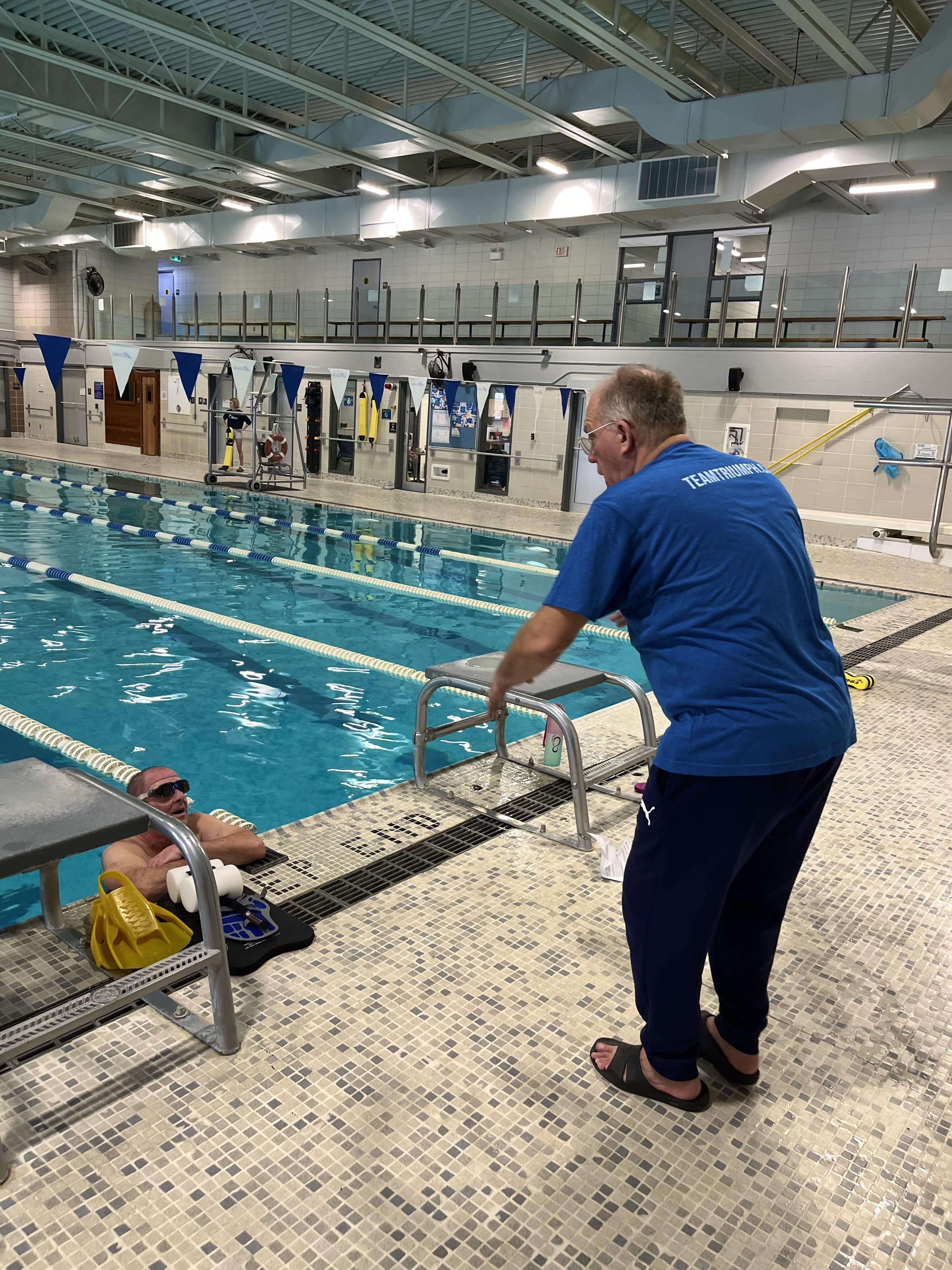
Triathlon training is as much a mental challenge as it is physical. While focusing on swim strokes, pedal cadence, and running form, it's easy to overlook the impact of stress on your training and performance. Whether it's work deadlines, personal relationships, or the pressure to perform, stress can significantly hinder your triathlon journey. Understanding how stress affects your body and implementing strategies to manage it are essential for optimizing training and achieving your performance goals.
The Physiology of Stress:
When you experience stress, whether it's physical (e.g., intense training sessions) or psychological (e.g., work pressure), your body responds by releasing hormones like cortisol and adrenaline. These hormones trigger the body's "fight or flight" response, increasing heart rate, blood pressure, and muscle tension to prepare you to deal with the perceived threat.
Impact on Training and Performance
Decreased Recovery: Chronic stress can disrupt your body's ability to recover from training sessions. Elevated cortisol levels can impair muscle repair and glycogen replenishment, leading to prolonged fatigue and decreased performance.
Weakened Immune System: High levels of stress hormones suppress the immune system, making you more susceptible to illnesses like colds, flu, or infections. Falling sick can disrupt your training schedule and hinder your progress.
Impaired Focus and Concentration: Stress can distract you from your training goals and make it challenging to stay focused during workouts. Poor concentration can lead to technical errors, decreased motivation, and reduced training effectiveness.
Increased Injury Risk: Stress-induced muscle tension and decreased coordination can increase the risk of overuse injuries and accidents during training sessions. Poor recovery also contributes to heightened injury susceptibility.
Mental Fatigue and Burnout: Constant stress can lead to mental fatigue, emotional exhaustion, and burnout, diminishing your enthusiasm for training and impacting your overall well-being.
Strategies to Manage Stress
Prioritize Recovery: Incorporate rest days, active recovery sessions, and adequate sleep into your training schedule to promote physical and mental recovery. Quality sleep is essential for hormone regulation and stress reduction.
Practice Relaxation Techniques: Incorporate relaxation techniques like deep breathing, meditation, yoga, or progressive muscle relaxation into your daily routine to reduce stress levels and promote relaxation.
Establish Work-Life Balance: Set boundaries between training, work, and personal life to prevent overwhelm and burnout. Prioritize activities that bring joy and relaxation outside of triathlon.
Communicate and Seek Support: Share your concerns with your coach, training partners, or trusted friends and family members. Expressing your feelings can provide emotional support and perspective.
Focus on Controllable Factors: Instead of fixating on external stressors beyond your control, concentrate on aspects of training and preparation that you can influence, such as nutrition, hydration, and recovery strategies.
Set Realistic Goals: Establish achievable training and performance goals that align with your current abilities, resources, and commitments. Avoid comparing yourself to others and celebrate progress along the way.
Stress is an inevitable part of life, but it doesn't have to derail your triathlon journey. By recognizing the impact of stress on your body and performance and implementing effective stress management strategies, you can cultivate resilience, optimize training outcomes, and enjoy the journey towards your triathlon goals. Remember, triathlon is not just about crossing the finish line—it's about finding balance, fulfillment, and personal growth along the way.
Julia Aimers
CSEP Clinical Exercise Physiologist
CSEP High-Performance Specialist
Certified Triathlon, Cycling, Yoga and Swimming Coach
USA Cycling Level 2 Coach
Training Peaks Accredited Coach

I would highly recommended Eric and Team Triumph!
Ian Ross

A year ago I could only tread water and had not run since childhood. With the amazing Virtual Olympic course, support, guidance, and tips from of all the folks at Team Triumph I've ended the season with my first Olympic distance triathlon under my belt and am hooked! Really looking forward to the 2025 season and even to the hard work over the winter to prepare. Karen Houle

I wanted to let you know that the Perth triathlon was a great experience, I somehow placed third in my age group! What a supportive group of participants (including Team Triumph athletes), cheering bystanders and volunteers.
Thanks to your swim lessons, I learned the technical basics and gained confidence to get back in the pool after decades. And it was really special doing this with Ann Laidlaw, my bestie for many years. We did a couple of additional swims with Kevin and Team Triumph people, also a great way to continue learning and practicing good technical form.
I will continue with lane swimming and who knows, maybe there's another triathlon in my future!